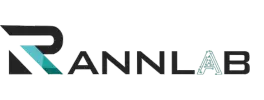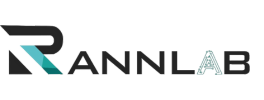Introduction
The healthcare sector is rapidly evolving, with EMR Solutions for Hospitals in India, gaining traction as hospitals look to improve patient care, streamline operations, and enhance data security. To ensure quality and compatibility, the National Health Authority (NHA) has developed specific compliance standards — M1, M2, and M3 — that guide the design and functionality of EMR solutions.
For healthcare providers, understanding and implementing these compliance levels is crucial to creating an effective and integrated digital health system. In this guide, we’ll cover what M1, M2, and M3 standards mean, the benefits of EMR compliance for hospitals, and how RannLab is helping hospitals implement compliant EMR solutions across India.
Understanding M1, M2, and M3 Compliance Levels for EMR Solutions
The NHA’s EMR compliance standards (M1, M2, and M3) are structured in a tiered approach, ensuring that EMR solutions meet minimum requirements and progressively incorporate advanced functionalities. Here’s a breakdown of each level:
M1 Compliance: Core EMR Functionalities
M1-compliant software includes the foundational elements needed for basic EMR functionality and record-keeping. It focuses on digitizing and securing medical records, providing hospitals with an essential framework for EMR usage.
- Data Capture and Storage: Allows hospitals to digitize patient records and store them securely.
- Basic Patient Identification: Ensures patient records are tagged with accurate identification markers.
- Data Security Protocols: Implements basic data protection measures to secure patient information.
Ideal For: Small hospitals or clinics new to EMR systems who need a cost-effective, basic digital solution.
M2 Compliance: Enhanced Functionality and Interoperability
M2 compliance builds on M1 standards, adding functionalities that facilitate interoperability and data-sharing across systems. M2-compliant EMR solutions are essential for facilities that require seamless integration with other healthcare institutions.
- Interoperability: Enables data sharing across multiple EMR systems and healthcare facilities, a key step toward building integrated health networks.
- Data Encryption and Privacy Features: Enhances data protection to ensure secure data exchanges between systems.
- Patient Health Summary: Introduces a consolidated view of a patient’s medical history for easy reference by healthcare providers.
Ideal For: Medium to large hospitals or those part of a hospital network, needing an integrated EMR system for collaborative care.
M3 Compliance: Advanced Analytics and Patient-Centric Features
M3 is the most advanced compliance level, incorporating analytics and patient-centric functionalities. M3-compliant EMR software supports complex healthcare environments, enhancing patient engagement and providing actionable insights through data analytics.
- Data Analytics and Reporting: Offers data-driven insights that help healthcare providers make informed, evidence-based decisions.
- Patient Engagement Tools: Includes features that empower patients, such as access to their medical records and appointment scheduling.
- Advanced Security Measures: Incorporates multi-factor authentication, detailed audit logs, and sophisticated encryption to protect patient data.
Ideal For: Large hospitals or institutions focusing on precision medicine, research, and advanced patient care management.
Why Compliance Matters: Key Benefits of M1, M2, and M3 EMR Solutions for Hospitals
Implementing M1, M2, or M3-compliant EMR solutions provides several benefits that help hospitals optimize their operations, enhance patient care, and maintain regulatory compliance.
- Standardization of Care: Compliance ensures that EMR systems follow a set standard, facilitating consistent, high-quality care across healthcare facilities.
- Improved Data Security: Compliance with NHA standards means that EMR solutions incorporate advanced security protocols, safeguarding sensitive patient data.
- Interoperability and Connectivity: Compliance promotes interoperability, essential for sharing patient data across various healthcare systems and providers.
- Enhanced Patient Engagement: Higher compliance levels, especially M3, enable patients to be more involved in their care, which improves health outcomes.
- Future-Proofing Healthcare: Compliance prepares healthcare providers to participate in the growing digital health ecosystem in India, aligning with government initiatives like ABDM.
Implementing EMR Solutions with RannLab: A Compliance-Ready Approach
RannLab specializes in delivering EMR solutions that align with NHA’s M1, M2, and M3 standards, helping hospitals across India integrate compliant, secure, and efficient digital health systems. Here’s how RannLab supports hospitals at each compliance level:
1. M1 Implementation: Digitizing and Securing Patient Records
For hospitals starting with EMR adoption, RannLab offers solutions that simplify the transition to digital record-keeping. Our M1-compliant software includes basic patient identification, data capture, and essential data security measures, making it easy for healthcare providers to begin their digital journey.
- Quick Deployment: RannLab’s M1 solutions are designed for rapid implementation with minimal disruption to daily operations.
- User Training and Support: We offer training and support to ensure staff are comfortable with the new digital workflows.
2. M2 Implementation: Building an Interoperable Health System
RannLab’s M2-compliant solutions enable hospitals to share patient data securely and efficiently with other institutions. With a focus on interoperability, we help hospitals integrate their EMR systems into a larger healthcare network.
- Seamless Data Integration: RannLab’s M2 solutions are designed to be interoperable with other EMR systems, facilitating data sharing across platforms.
- Enhanced Data Security: We implement advanced encryption and privacy protocols, ensuring patient data remains protected during exchanges.
3. M3 Implementation: Advanced Analytics and Patient-Centric Tools
For hospitals looking to leverage data analytics and improve patient engagement, RannLab offers M3-compliant solutions. These advanced systems include analytics tools for decision-making and patient portals that empower patients to take an active role in their healthcare.
- Data Analytics for Better Insights: RannLab’s M3 solutions include reporting tools that help healthcare providers track trends and outcomes.
- Patient Engagement Features: We provide patients with access to their medical records, appointment scheduling, and direct communication with healthcare providers.
RannLab’s Unique Approach: Customization, Compliance, and Support
At RannLab, we understand that each healthcare facility has unique needs and challenges. That’s why our EMR solutions are designed to be customizable, allowing hospitals to choose features that align with their goals while maintaining compliance.
- Customizable Solutions: Our EMR systems are flexible, allowing hospitals to add modules or features as needed.
- Continuous Compliance Updates: We regularly update our software to ensure continued compliance with evolving NHA standards.
- Ongoing Support: Our team provides support to address any issues post-implementation, ensuring that the EMR system runs smoothly.
How to Choose the Right Compliance Level for Your Hospital
The choice of M1, M2, or M3 compliance depends on a hospital’s size, digital readiness, and objectives. Here’s a quick guide to help decide:
- Small Hospitals/Clinics: Start with M1 compliance to digitize records and build a secure foundation.
- Medium/Large Hospitals: Opt for M2 to integrate with other facilities and enhance data security.
- Advanced, Patient-Centric Hospitals: Choose M3 for robust analytics and patient engagement tools, supporting a fully integrated healthcare experience.
Conclusion
Implementing M1, M2, and M3-compliant EMR solutions isn’t just about regulatory adherence — it’s about building a more efficient, secure, and patient-centered healthcare system in India. RannLab’s expertise in developing and deploying compliance-ready EMR solutions ensures that hospitals of all sizes can transition to digital health confidently and effectively.
Ready to implement an EMR solution that meets your hospital’s needs? Contact RannLab today to find out how we can help you achieve M1, M2, or M3 compliance and join India’s digital health revolution.





